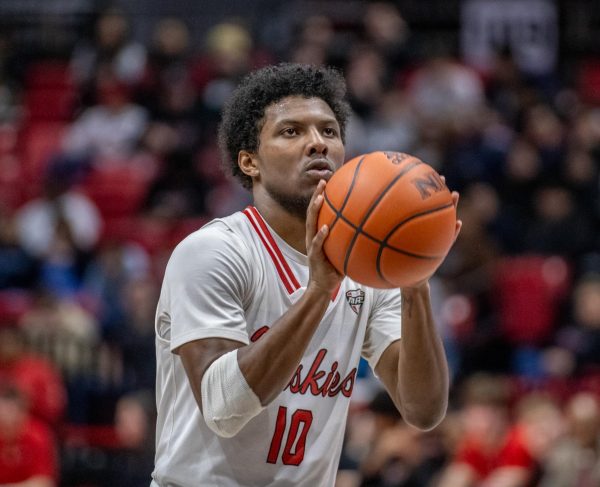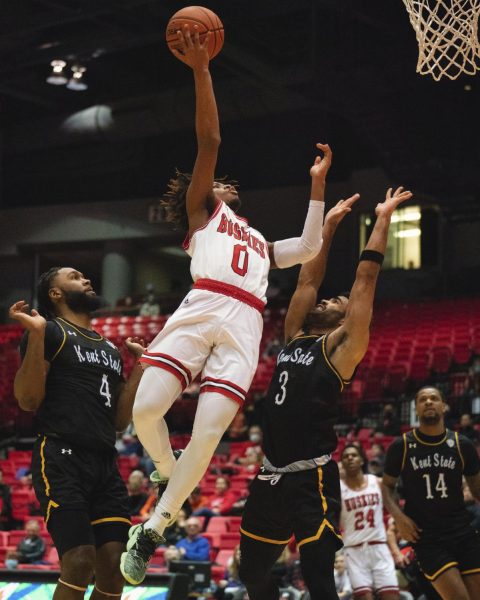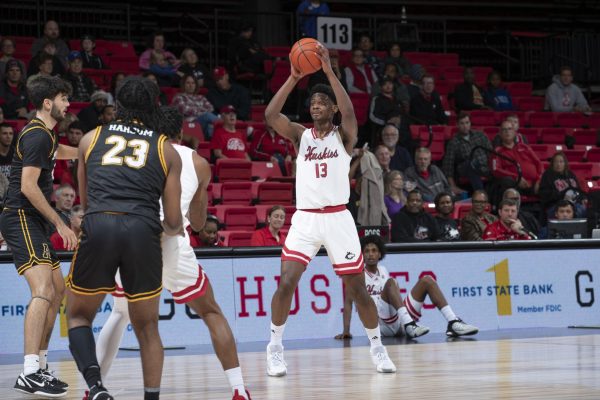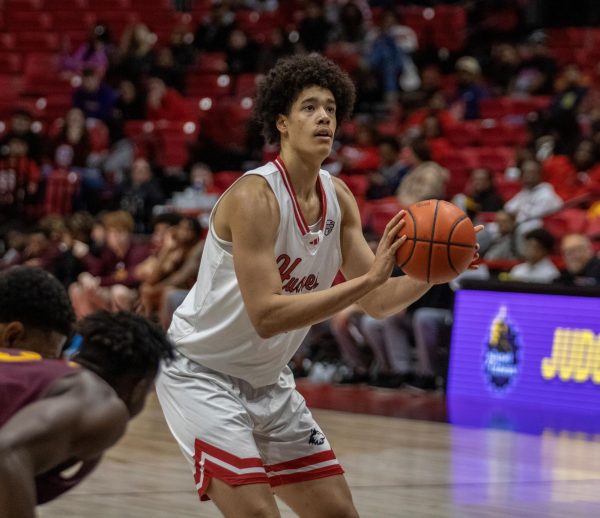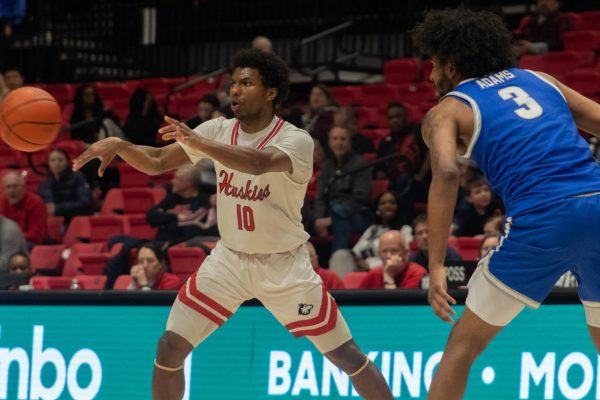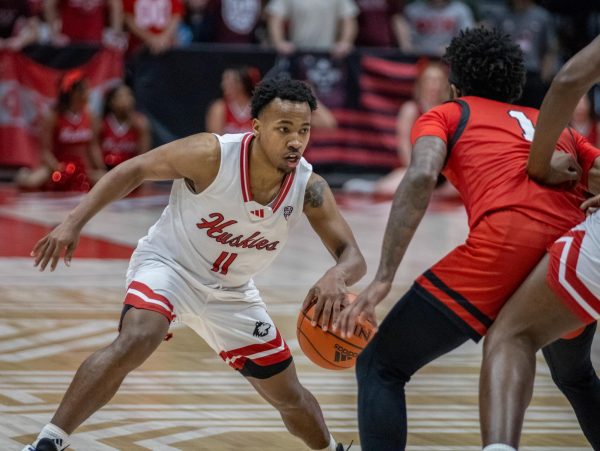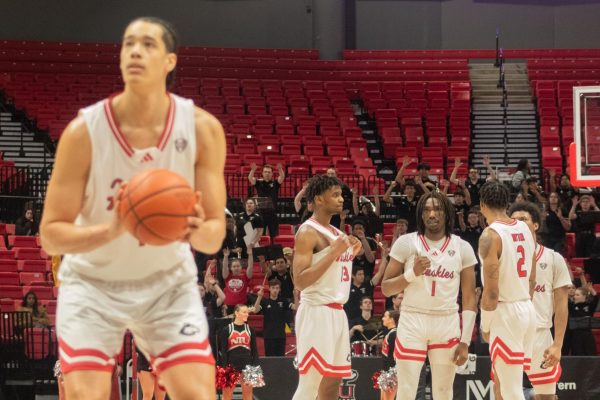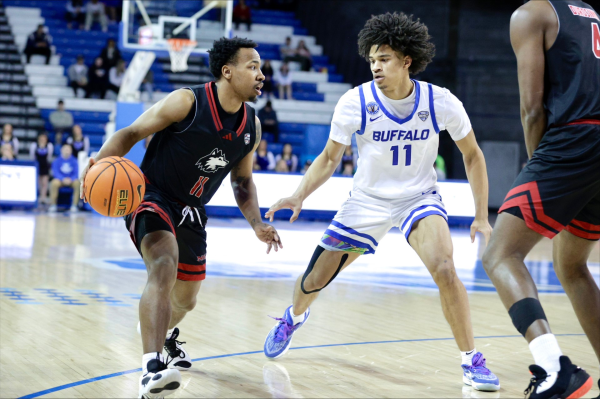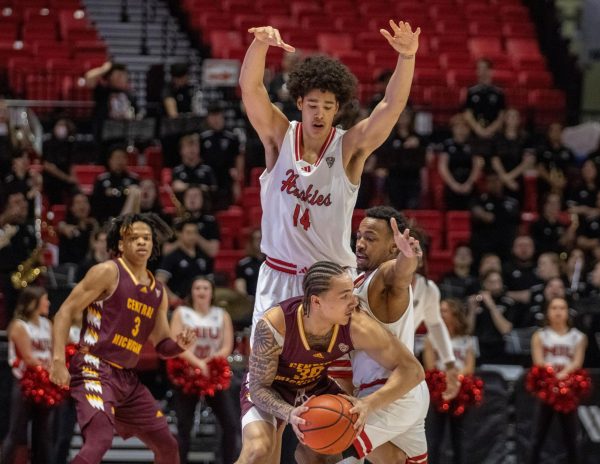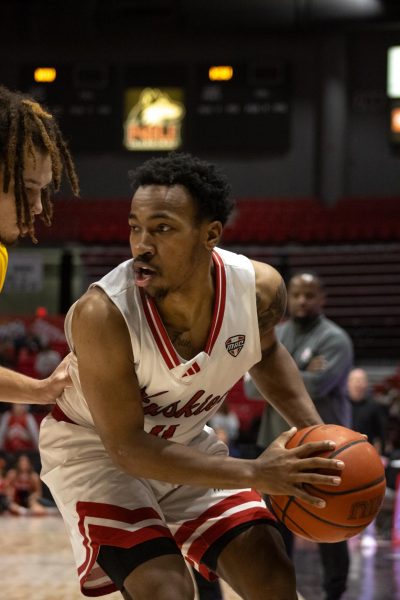Coaches discuss academic requirements
March 8, 1988
NIU and other major college institutions have made academic rules to protect the student/athlete, but several NIU coaches say the rules could be improved.
The current NIU grade point average rule states athletes must have a 1.70 prior to their second, third and fourth semesters, a 1.85 prior to their fifth and sixth semesters and a 2.00 prior to their seventh, eighth, ninth and 10th semesters.
Men’s tennis coach Carl Neufeld said he thinks this GPA rule is unfair to some athletes.
“If a kid isn’t cutting it he shouldn’t be in there, but I don’t like penalizing a kid who comes in and tries to take a very tough academic load, and because he does that maybe goofs up in one or two classes and is ineligible.” he said. Neufeld also said it is not fair to students who take a tough load and fail, when other students take a lighter schedule and pass.
Women’s basketball coach Jane Albright said, “I think that if you’re a junior college transfer or a freshman, it’s tough on you because if you come in and have a bad semester—that’s it.”
Because there is no National College Athletic Association rule covering minimum grade point averages, it’s up to each individual school or conference to make their own guidelines. Neufeld said he would be in favor of a rule in which the coach or athletic administration of the institution decides when the athlete’s grades have fallen too low. He said because each institution is different, it is difficult to set a fair GPA standard.
“You just can’t put all the basis on that grade point average,” Neufeld said. “Each institution should be able to decide, even student by student, as to who’s eligible and who isn’t.”
However, softball coach Dee Abrahamson said a subjective eligibility system would put too much pressure on the coaches, while a definite standard takes that pressure off.
“That system is as good as the person making the decisions,” she said. “There can be a conflict of interest. What’s best for the students might not be what’s best for your boss.”
Satisfactory progress is another somewhat controversial rule, because it sets restrictions on how many credits athletes must have during certain points in their academic lives.
At NIU, an athlete using a 1985-86 undergraduate catalog must compile 30 or more hours of general education requirements upon completion of 72 total hours. People using the 1987-88 catalog must complete 33 hours of general education by that time. The rule also states that an athlete must complete 40 percent of the requirements within their major and degree after completing 90 total hours.
Albright said she thinks the satisfactory progress rule has a flaw. “It doesn’t give leeway for a person to make a lot of mistakes or to change her mind,” she said.
Abrahamson said the rule is a good idea, but it hurts students who want to wait to take their general education classes.
If athletes do not meet the overall standards, they become ineligible for the following semester. Donald Whiteside, a guard for the NIU basketball team, is one such case. The freshman, who missed the second half of the 1987-88 season, said he did not meet the GPA requirement because he scheduled classes which were too difficult. Still, Whiteside said he did not feel the rules are too stiff.
“I think they’re pretty fair,” Whiteside said. “All you have to do is motivate yourself. I can’t blame anybody but myself.”
One program on campus which is geared toward helping athletes with the books is the Athletic Counseling Program. Don Bramlett, the program’s coordinator, tracks each athlete’s academic progress throughout the semester.
Bramlett sends progress reports to each athlete’s professor two times per semester and also receives grade reports from professors at the end of the semester. If a student is in danger of not meeting university requirements, the coaches are notified and the student will receive extra help, such as tutoring.
Every athlete is required to attend every class, unless they are ill, on a team trip or gone because of an emergency. Individuals who are new to the university or who are experiencing difficulty in the classroom also must attend a study table every Monday through Thursday night.
Bramlett said to help student/athletes adjust to the time involved in college athletics he usually advises them to schedule lighter classloads when they first arrive or when they are in their season.



